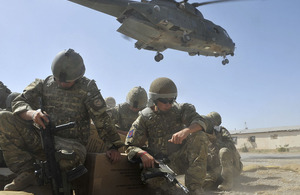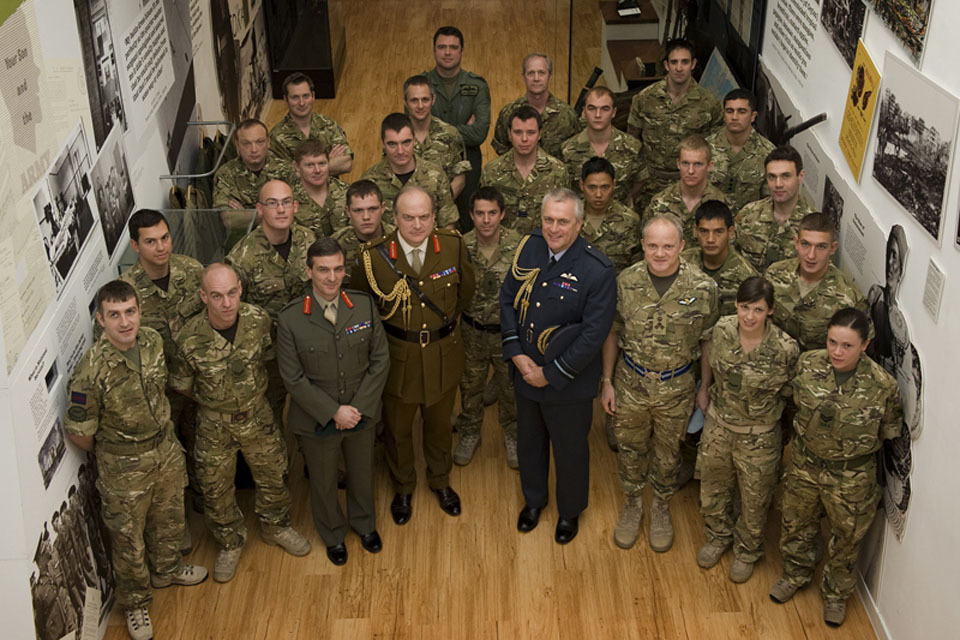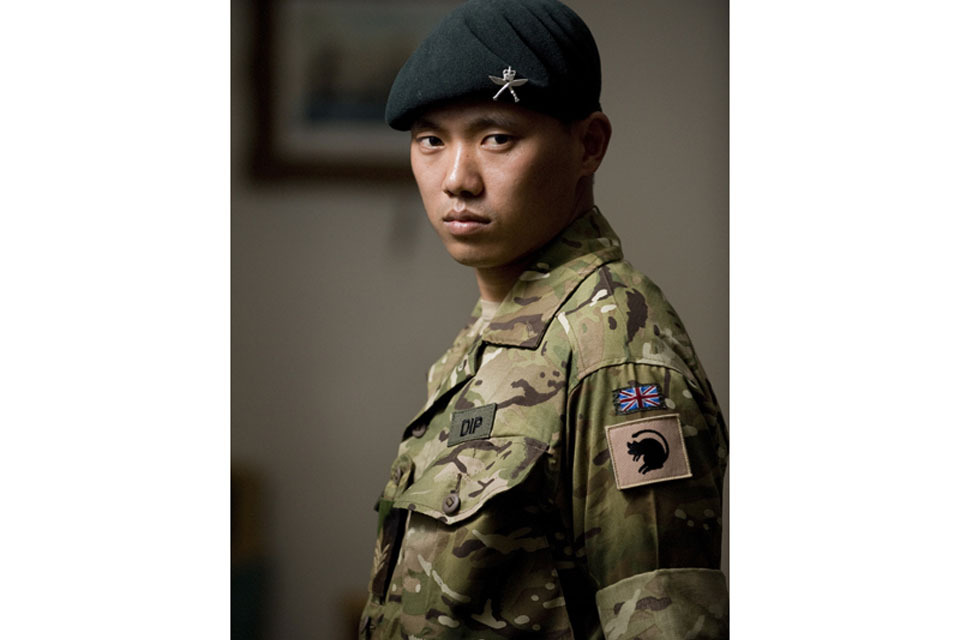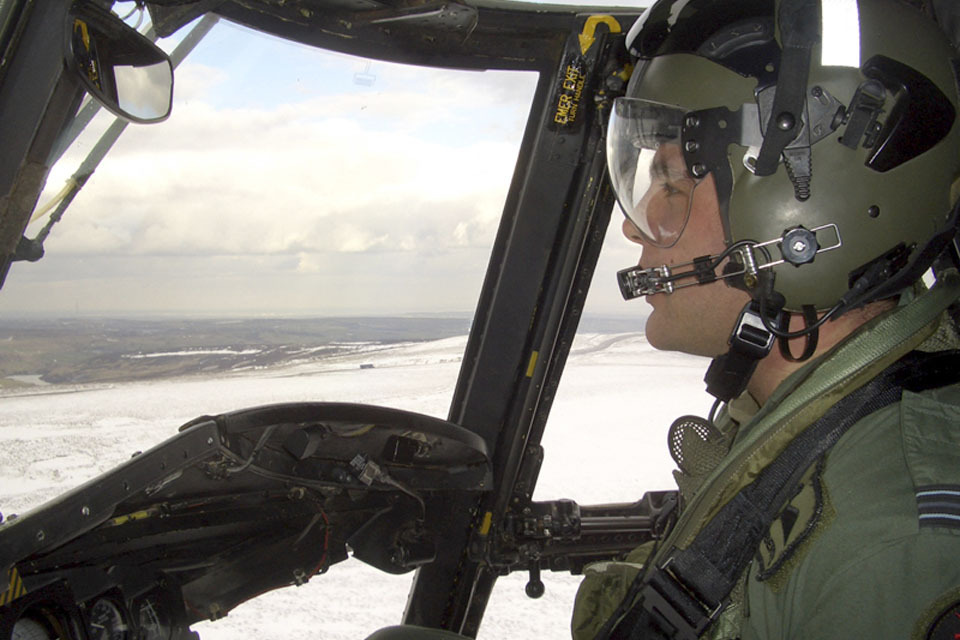The outstanding examples of a generation - the Op Honours recipients
The National Army Museum in Chelsea hosted the Operational Honours and Awards ceremony (List Number 36) yesterday, where 28 of the 136 servicemen and women being honoured were praised by Commander Field Army, Lieutenant General Barney White-Spunner.

Soldiers from 4 Mechanized Brigade in Afghanistan, September 2010 [Picture: Corporal Gary Kendall RLC, Crown Copyright/MOD 2010]
The full awards list was published today, Friday 25 March 2011, and can be found at Related News.
General White-Spunner said at yesterday’s ceremony that while he appreciated that there were many events of great significance happening in the world at the moment getting press coverage, the purpose of the day was to honour the extraordinary achievements in Afghanistan of the servicemen and women mentioned in the list:
It is a great honour to present these awards,” he said. “Although we are in the National Army Museum, today is not just about the Army, but all three Services. We have 28 of the 136 recipients here, and they represent only a very few of the many who demonstrate tremendous courage every day in the face of a clever and ruthless enemy. This is also a tribute to them.
General White-Spunner described the summer of 2010 in Helmand as a key period in Op HERRICK 12, one which saw some tough and bitter fighting but which led to great success. He said:
This is reflected in the improved security for locals and a marked improvement in their Army and Police forces. The Taliban at first held control, but by the end that tide had been reversed. This list of honours reflects that success, and I and everyone in Britain wish to express our gratitude. Sadly some did not return, and they will not be forgotten. Our thoughts and prayers are with them.
Reading the citations would make anyone feel humble. General White-Spunner is no different:
I regard these people as outstanding examples of a generation. We are lucky to live in a country that produces them, and fortunate to have such people in our Armed Forces.

Lieutenant General Barney White-Spunner (centre, left) with some of the award winners at the National Army Museum in London [Picture: Sergeant Ian Forsyth RLC, Crown Copyright/MOD 2011]
Brigadier Richard Felton, who has been awarded a CBE in the list, was Commander Task Force Helmand from April to October 2010, commanding 6,500 troops:
This is a special day,” he said, “it formally recognises the high levels of professionalism of our Armed Forces. It was a hard summer, with some dark and difficult times. Our thoughts and prayers go out to all who did not return, and to those seriously wounded.
Brigadier Felton said that thanks to the significant contribution of those present, and all they served alongside, including coalition and Afghan forces, a corner had been turned in Afghanistan:
Most importantly we have done this in partnership with the Afghan National Security Forces [ANSF], giving confidence to the Afghan people that their forces can be relied upon to keep them safe.
The Brigadier said that he was particularly proud that the elections in September had gone well despite the Taliban’s clear intent to disrupt them:
The fact that they failed is down to the ANSF, not ISAF. That is our enduring legacy, and today I am pleased to be able to formally thank you for that,” he said to the award winners.
Any one of the stories these brave servicemen and women have to tell is humbling. It seems invidious to single any out for special attention. The ones here give just a flavour of the calibre of not just the recipients of these awards, but of all our Armed Forces.
Ninety-three gallantry awards were made, including three Conspicuous Gallantry Crosses, five Distinguished Service Orders, 14 Military Crosses and a Distinguished Flying Cross. In addition to these, 43 meritorious awards were made, including three CBEs and four OBEs.
Among the recipients of the latest honours are Acting Sergeant Dipprasad Pun of the Royal Gurkha Rifles who receives the Conspicuous Gallantry Cross for actions in Afghanistan during September 2010.
Sergeant Pun’s platoon had been manning two checkpoints in the east of a remote village. This isolated outpost had been attacked regularly since being established, with grenade attacks being the preferred enemy tactic.

Acting Sergeant Dipprasad Pun, 1st Battalion The Royal Gurkha Rifles [Picture: Sergeant Ian Forsyth RLC, Crown Copyright/MOD 2011]
On the evening of the day in question, Sergeant Pun was one of four men left in the southern compound because the platoon had pushed out a patrol to dominate the road to the east in readiness for the next day’s parliamentary elections. All were taking turns to man a single sangar position on the roof in the centre of the compound.
Sergeant Pun was on duty when he heard a clinking noise to the south of the checkpoint:
I thought at first maybe it was a cow,” he said, “but my suspicions soon built up, and I saw Taliban digging to lay down an IED in front of our gate.
Sergeant Pun had the presence of mind to gather up two radios, which would enable him to both speak to his commander and to call in artillery support, his personal weapon, and a general purpose machine gun.
Realising that he was about to be attacked, he quickly informed his commander on one of the radios, and launched a grenade at the enemy. Sergeant Pun single-handedly fought off an enemy attack on his lightly manned position. In the dark he tackled the enemy head on as he moved around his position to fend off the attack from three sides, killing three assailants and causing the others to flee.
In doing so he saved the lives of his three comrades and prevented the position from being overrun. Sergeant Pun couldn’t know how many Taliban were attempting to overcome his position, but he sought them out from all angles despite the danger, consistently moving towards them to reach the best position of attack:
I thought there might have been around 20 to 30, but later locals told me it was probably about 15. The firing went on continually for about 17 minutes,” said Sergeant Pun.
At first I was a bit scared, and I thought definitely they are going to kill me. But as soon as I started firing, that feeling went away.

Squadron Leader Matthew David Roberts, Royal Air Force [Picture: Crown Copyright/MOD 2010]
During the fight Sergeant Pun fired off about 250 rounds from his general purpose machine gun (GPMG), emptied six magazines from his SA80 rifle, and fired 17 grenades and a claymore mine. In fact, such was the intensity of the fight that Sergeant Pun fought off one attacker with a GPMG tripod, shouting in Nepalese ‘Marchi Talai’ - ‘I will kill you’, and even dropped a bag of sand on one insurgent trying to climb up to him:
At the end I was near collapse,” he said. “I am very lucky, but I am a survivor. My family are very happy, my father was an Indian Army Gurkha, so he understands.
In fact Sergeant Pun is the third generation in his family to be decorated.
Squadron Leader Matthew David Roberts from the Royal Air Force has been awarded the Distinguished Flying Cross for actions in Afghanistan in October 2010.
Squadron Leader Roberts led his crew on three medical missions recovering four Category A casualties, the second of which was conducted under the most extreme enemy threat.
Tasked to recover two US casualties, Squadron Leader Roberts and his crew routed to the area in their Chinook, along with an Apache helicopter escort, knowing that there was still a major fire fight ongoing.
With US aircraft engaging targets in the vicinity of the casualties, Squadron Leader Roberts initially held off over the desert while the Apache attempted to gain situational awareness. He then directed his crew to carry out a confidence check of the aircraft weapon systems when the port minigun suffered an unrecoverable stoppage, effectively rendering the port side of the aircraft undefended:
When a weapon fails it then is a question of mission imperative, whether you carry on or not,” he said.
It was at this point that an update was received informing them that one of the casualties had died of his wounds and the second was rapidly deteriorating:
In these situations you don’t think twice. It just meant we had to try and keep the enemy on our right-hand side.
With a reported lull in the fire fight, Squadron Leader Roberts decided to ingress to the landing site but spotted the ground forces and splash from enemy small arms fire all around the helicopter landing site, followed by the distinctive noise of rounds impacting the aircraft:
We fly an amazing helicopter, it took it well and nothing mission critical was hit,” he said with incredible calmness.
His citation says that he displayed the very highest levels of courage in placing his aircraft on the ground as the fire fight again intensified. With mortar fire and two rounds bracketing the aircraft, the body of the dead soldier and the critically wounded casualty were quickly loaded:
The guys at the back were feeding me great situational info all the time, which gave me confidence. They helped me hold it all together,” he said.
Surrounded by the enemy, Squadron Leader Roberts took off and was engaged immediately, the aircraft suffering hits to the fuselage. He led his crew with calmness, inspiring them to persevere through the most dangerous conditions. His captaincy, airmanship and gallantry were of the highest order:
Listening to the citations of the others has been utterly humbling. We have the utmost respect for the land forces that we ship off the back of our helicopters,” he said.
To listen to what the guys who step off the back have achieved, some of them only twenty years old, is very humbling. This award I hope will let them know that we will always be there to come and get them.